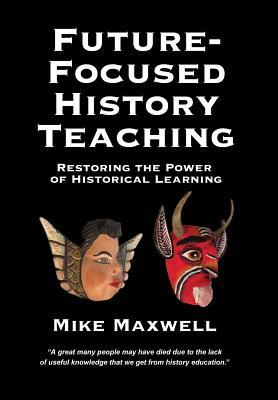HISTORY EDUCATION IS IN DECLINE because it fails to provide knowledge useful in the future as other school subjects do. This book calls on history teachers to restore the power of historical learning.
Education exists to impart knowledge useful in the future. School subjects other than history identify general principles derived from their subject matter that describe how the world works, principles that can be applied in the future such as addition in mathematics, grammar in language, and gravity in science. These disciplines pass on their general principles to teachers who pass on this knowledge to students.
Historians, however, concentrate on describing events of the past. Without general principles to impart, history teachers are left to recount one-time bygone events, most of which have little or no relevance to the present and future. Without principles useful in the future, history is unable to fulfill the purpose of education the way other school subjects do; society has no practical means to learn from the past; and the cycle of historical ignorance can perpetuate indefinitely.
Educators commonly try to compensate for history schooling's lack of knowledge useful in the future by emphasizing skills knowledge instead: critical thinking skills or the job skills of professional historians. Other school subjects also have their critical thinking skills and professional practices, but in these other disciplines general principles constitute the foundation of learning because knowledge of how the world works is a necessary prerequisite to critical thinking. In history education that prerequisite is missing.
The truth is, history has been supplying humans with useful principles of knowledge for at least 2,400 years, since the time of Thucydides in Greece and Sun Tzu in China. In earlier times, history could involve more than the act of describing past events; it could involve the ambition to derive from events principles useful in the future, an ambition that the history profession has largely abandoned. This loss deprives historical learning of the power possessed by other intellectual disciplines.
If historians wish to concentrate on the role of describing events of the past, that's their business. Then the task of providing knowledge useful in the future falls to history educators, because that's their business.
FUNDAMENTALS OF FUTURE-FOCUSED HISTORY TEACHING INCLUDE
- Five basic principles of history education
- A coherent and useful purpose to guide instruction
- Four kinds of historical knowledge relevant to the future
- Criteria for weighing the importance of historical events
- Four essential cognitive learning strategies
Author Maxwell believes that Future-Focused History Teaching has the potential to restore to historical learning the power that it once held but has since lost; to return history to its rightful place of prominence among the fundamental realms of knowledge taught in school and college; and to provide important knowledge of how the world works that can help students and society to function effectively in the future.
Note: This book is not a classroom teaching guide with a collection of handy lesson plans. This book deals with fundamental premises and practices that underlie the work of every history teacher from grade school through graduate school.
